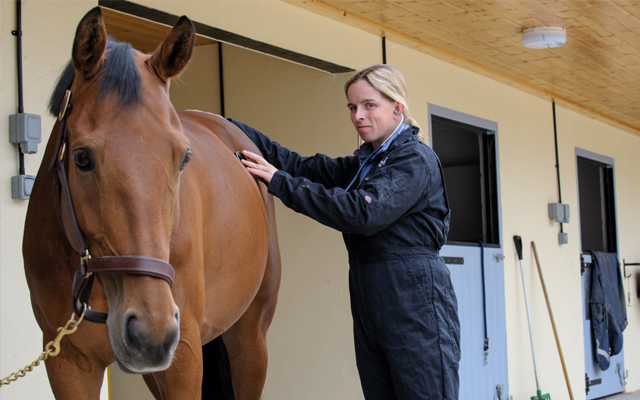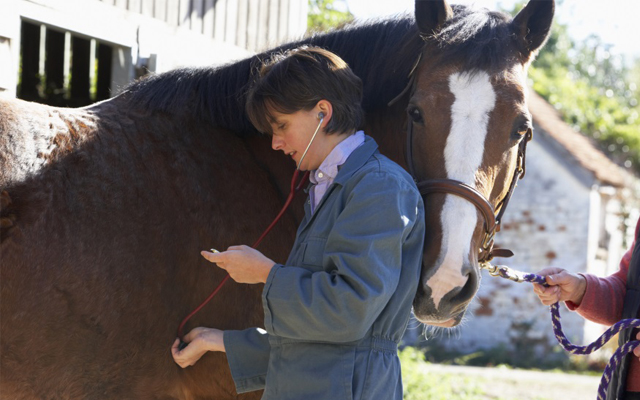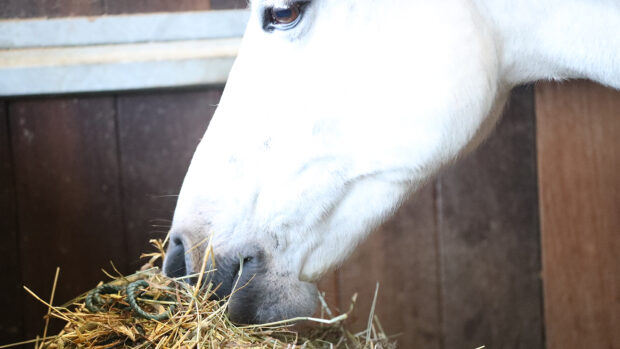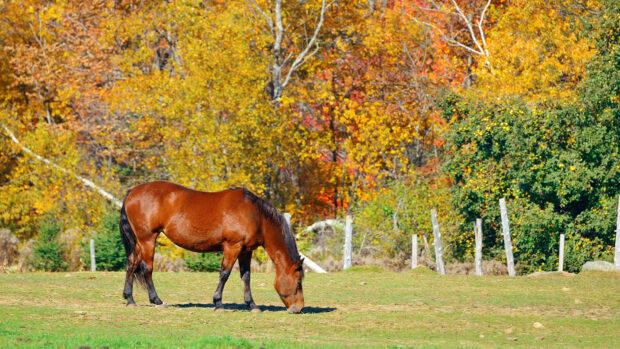Promotional Feature
Leading insurer Petplan Equine has revealed the top five conditions it received claims for in 2016. Colic was the number two health problem, so here we take a look at what it is, how it affects your horse and how to manage it.
What is it?
Colic is the name given to abdominal pain in horses. Ranging from a mild stomach ache to a displacement or twist in the intestine requiring life-saving surgery, colic is one of many horse owners’ biggest concerns.
Most colic cases are successfully treated medically. However, for the 5-10% requiring surgery it can be very serious and, in some cases, horses do not survive. It is difficult to know which colic case fits into which category, as in the early stages the clinical signs are the same (see below). Therefore it is vital that a vet is called promptly so they can give expert advice and start appropriate treatment as quickly as possible. Any colic requiring surgical intervention has a much better chance of success if surgery happens as early as possible.
What are the clinical signs?
- Pawing or scraping the ground
- Turning to look at the abdomen (‘flank watching’)
- Restlessness — getting up and down frequently
- Frequent attempts to urinate
- Rolling
- Increased pulse and high temperature
- Kicking at the abdomen
- Curling the upper lip
- Standing in a stretched position as if trying to pass urine
- Failure to pass droppings for an extended period of time
What do I do if I suspect my horse has colic?
If you think your horse has colic, call your vet urgently.
Horses with mild colic may benefit from being walked in the school or paddock while waiting for the vet to arrive as it can distract the horse from the pain. If your horse wants to get down or roll, then let him — the situation will not be helped by you sustaining an injury trying to keep him walking or tiring him out.
Types of colic
There are many different types of colic that horses can suffer from. The list below is not exhaustive, but covers the most common examples.
- Spasmodic/gas colic: Pain is caused by a build-up of gas in the horse’s gut due to excess fermentation within the intestines or a decreased ability to move gas through it. It is commonly caused by a change of diet, a lack of roughage or parasites.
- Impaction colic: This is when a blockage occurs in the intestine. It typically responds well to medical treatment in the form of pain relief, fluids and laxatives, but some cases will require surgery.
- Sand colic: Most typically seen in horses kept on sandy pastures, especially when there is limited grazing available. The horse ingests sand (and dirt), which accumulates in the gut. It can lead to an impaction or it can irritate the lining of the bowel, causing diarrhoea. The weight and abrasion of the sand or dirt causes the bowel wall to become inflamed.
- Twisted gut: There are various parts of the horse’s gastrointestinal tract that may twist upon itself, leading to an interruption in blood supply to that section. A twisted gut is extremely painful for the horse and requires emergency surgery.
How can I help prevent equine colic?
- Feeding: Make sure your horse has a constant supply of fresh water, and feed little and often. If you need to alter your horse’s feed make sure you introduce changes gradually
- Health care: Ensure your horse has frequent health checks; follow an appropriate worming program, poo pick the paddocks at least once a week and ensure he has regular dental health checks
- Routine: Keep your horse happy and stress-free by avoiding changes to his routine. Make sure he gets enough down time in the field and relaxing hacks in addition to his schooling programme
Unfortunately in some cases colic can happen regardless of management which is why it is important to be aware of your horse’s normal behaviour to be able to see when changes occur and symptoms of colic are displayed.
For more information on your horses digestive system take a look at our colic guide and video from Petplan Equine vet Gil Riley.
Horse insurance can help cover the costs of unexpected veterinary care, so make sure any horses in your care are covered.
Fact: Petplan Equine paid out over £656,643 in claims for colic in 2016
For further information and more advice on Petplan Equine’s top 5 conditions visit Petplan’s website.
Petplan Equine’s top 5 most commonly occurring claims in 2016 were:
1) Arthritis
2) Colic
3) Gastric Ulcers
4) Laminitis
5) Desmitis (inflamed ligaments)






